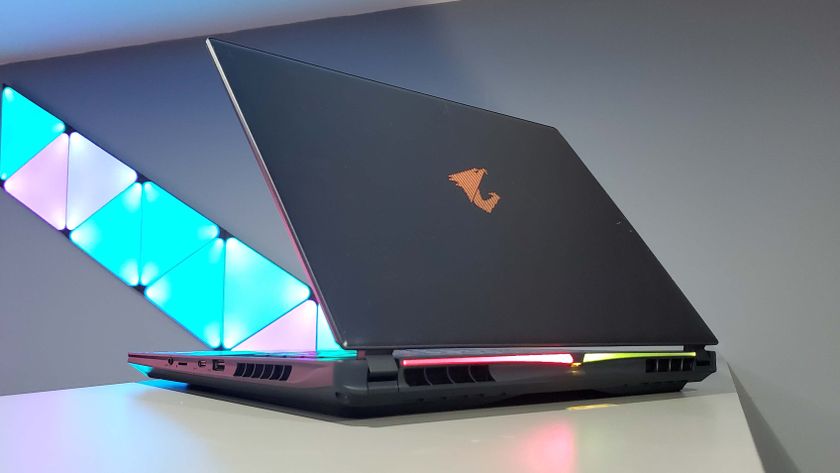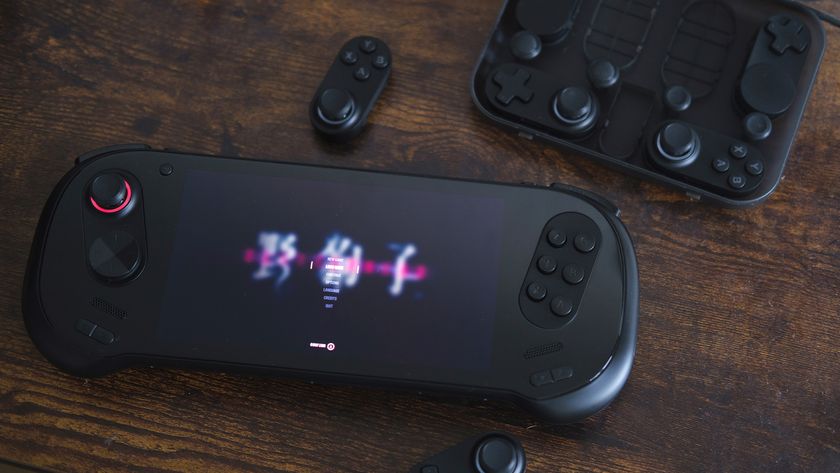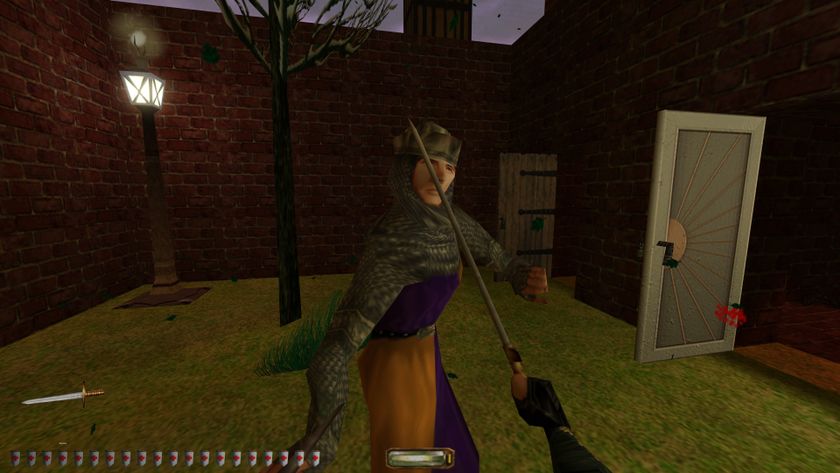All I want for Christmas is the Xbox Series X Quick Resume feature
The only thing the PC cannot better from Microsoft's latest console is the almighty Quick Resume. And I want it bad.
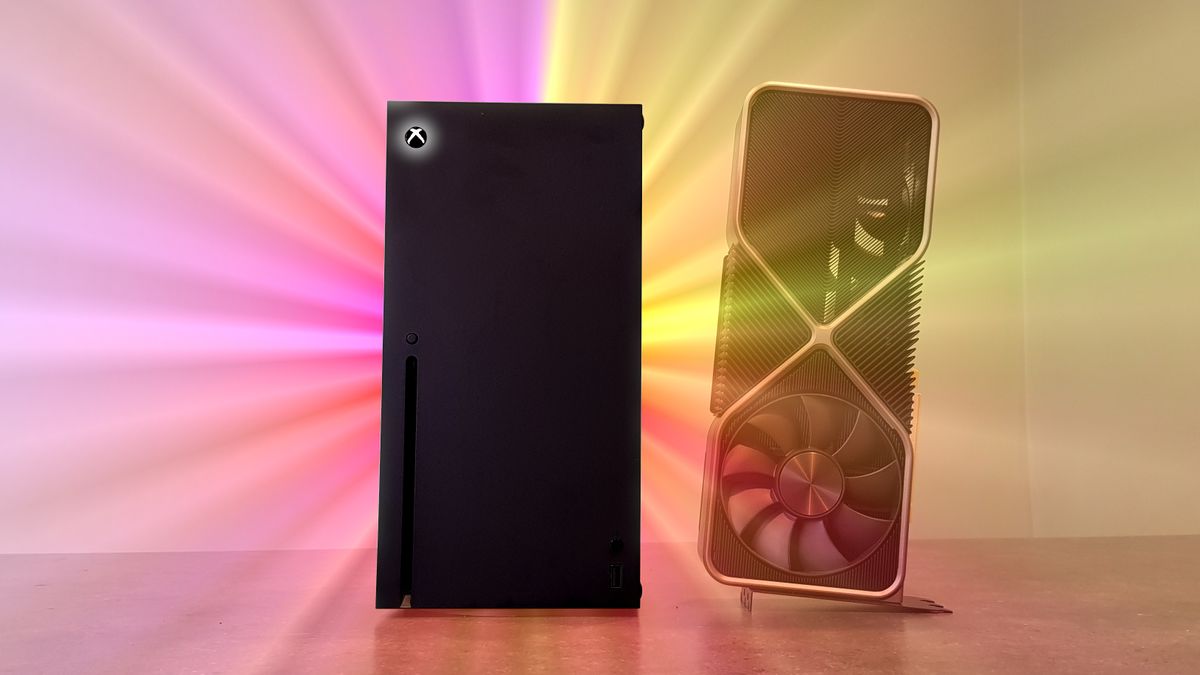
The Xbox Series X is the most powerful games console ever made. I tested the machine back at launch to see how relevant Microsoft's new box is for PC gamers, but the only thing I miss going back to my PC full time is the outstanding Quick Resume feature. That's the only feature with no PC equivalent and it's all I want from the Series X, everything else I'm happy to leave gathering dust on the shelf by my TV.
So yeah, this year has not only seen some of the best PC gaming hardware ever released—though completely impossible to actually buy—but we've also had a whole new generation of consoles too. Which are similarly impossible to buy. But despite all that, and given the length of time between the previous- and next-gen pseudo PC game boxes, this latest generation is a high point for many reasons.
Sony is backing its exclusive titles as the things to sway gamers the way of the PlayStation 5, and Microsoft seems keen to tie the PC and Xbox Series X/S machines together in more ways than ever before. Oh, and there's the fantastic DualSense controller too, which would have been another reason for opting for the PS5… if it wasn't starting to be genuinely supported on PC.
Both new consoles also sport the latest in AMD's RDNA and Zen GPU and CPU technologies, and that means they're also the first consoles to support ray tracing, and the most affordable means of accessing that funky, sometimes freaky, lighting tech.
But one of the biggest things to make the new consoles stand out from any previous generation is the level of storage both can offer. We're not talking about how many bytes they have for you to jam your game disks into—the Series S doesn't even have disks :shocked_face_with_exploding_head:—we're talking about how swiftly they can throw those bytes about.
Yes, the consoles have finally arrived in 2008 with solid state drives of their very own. How quaint. They're both utilising the latest PCIe 4.0 interface, but that doesn't necessarily mean they're using the full potential throughput of that interface. Unlike the speediest PCIe 4.0 drives on PC the Series X and PS5 are only using two lanes as opposed to the four of the latest interface on the AMD X570 and B550 chipsets.
We've checked out the relative performance of the next-gen consoles' SSDs compared with the PC, and were surprised that actually even older SATA-based PC drives can keep up with the PS5 and Xbox SSDs.
The biggest gaming news, reviews and hardware deals
Keep up to date with the most important stories and the best deals, as picked by the PC Gamer team.
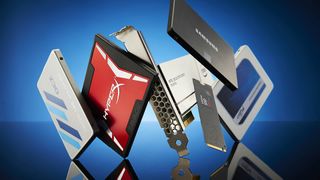
But forget all that, because the Quick Resume feature means I could care less about the actual pace of the Series X's drive. It's a startlingly effective feature of the new Microsoft hardware and I fervently hope it finds a way to make it part of the Windows ecosystem too. Essentially it captures the state of up to five different games in a pre-allocated space on the SSD, and means you can swiftly hop between them without having to go through the rigmarole of a million different splash screens before getting back to the action at the exact point you left.
The Velocity Architecture is touted as the tech behind Quick Resume, but really it seems very much like an app-based hibernation, saved onto the solid state drive. Unlike when you put your PC to sleep, Quick Resume doesn't actually require the system to receive continual power. You can unplug your Series X/S and when you power it back up you can jump back into a Quick Resume-saved game straight away.
In practice it takes less than 10 seconds to move from one game state to another, all without having to actually 'load' the game in any traditional manner. This isn't exactly some completely revolutionary way to experience gaming, but it quickly becomes a feature on the new Xbox that you absolutely miss when it's not there. And that does still happen on the Series X/S because it's not actually available in every game.
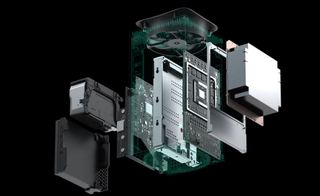
The current beta status of Quick Resume means that it was disabled from a bunch of launch games after a bug was discovered, but subsequent system updates are increasing compatibility. Microsoft is committed to enabling it on what it says are its 'most-played titles' and says that it's "working all the the time to add Quick Resume support for more games."
And sometimes it didn't work 100 percent reliably in my own testing experience, occasionally forcing me to sit through all the full loading screen shenanigans before gaming again despite exiting a game I knew to have Quick Resume enabled. But those were rare occasions, and when it works it's a genuinely fantastic feature.
Everything else the powerful Series X can do, a quality gaming PC can do as well, and more often than not do it better. But Quick Resume has no parallel on PC. I'm not sure if that's because the operating system doesn't have complete control over your games within Windows, with a host of other stores looking after the actual booting and shutting down of your games, but I'd love there to be some way for us to apportion a percentage of our solid state drives for a similar feature.
It's not like games take an age to load on the best SSDs right now, but anything that takes a step out of the way can only be a boon. Microsoft has been making a lot out of the blurring of lines between PC and console, so now it'd be nice if it put its dev where its mouth is.

Dave has been gaming since the days of Zaxxon and Lady Bug on the Colecovision, and code books for the Commodore Vic 20 (Death Race 2000!). He built his first gaming PC at the tender age of 16, and finally finished bug-fixing the Cyrix-based system around a year later. When he dropped it out of the window. He first started writing for Official PlayStation Magazine and Xbox World many decades ago, then moved onto PC Format full-time, then PC Gamer, TechRadar, and T3 among others. Now he's back, writing about the nightmarish graphics card market, CPUs with more cores than sense, gaming laptops hotter than the sun, and SSDs more capacious than a Cybertruck.
